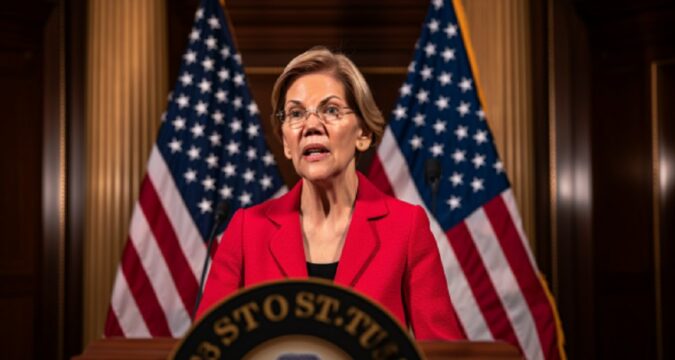
The Bank Policy Institute (BPI) has revealed its support for Senator Elizabeth Warren’s reintroduced Digital Asset Anti-Money Laundering (AML) Act. The act proposed that dedicated AML laws should govern crypto assets.
The prominent banking advocacy group in the United States is the latest research and advocacy group publicly announcing its support for the bill. This legislation, co-sponsored by Senators Roger Marshall, Joe Manchin, and Lindsey Graham, seeks to bring digital assets under a special Anti-Money Laundering (AML) framework.
Strengthening The AML Framework For Digital Assets
The BPI emphasizes the necessity of incorporating digital assets into the existing AML framework to protect the stability of the country’s financial system from illicit activities like money laundering and terrorism financing. The AML framework does not adequately address digital assets’ unique challenges, especially transparency regarding crypto-related transactions.
If the lawmakers approve, the proposed 7-page bill would place certain obligations on entities operating in the digital asset industry, including wallet providers, miners, and blockchain validators. The bill proposes that entities maintain detailed records of their customers’ identities to ensure accountability and traceability of digital asset transactions where necessary.
Additionally, the bill aims to prohibit financial institutions from utilizing digital asset mixers, such as Tornado Cash, which usually obscure blockchain data and make it harder to trace the flow of funds.
Support And Objections To The Crypto Bill
Apart from the BPI’s endorsement, the Digital Asset Anti-Money Laundering Act has garnered support from other groups. Such groups include the National Consumer Law Center, Massachusetts Bankers Association, and the National Consumers League.
This increasing support highlights a broad interest in reinforcing AML measures for crypto asset firms. However, the bill has also faced opposition.
Tyler Winklevoss, the co-founder of the Gemini crypto exchange, disagreed with the new provisions in the proposed legislation. He expressed his reservations via a recent Twitter thread.
Senator Warren’s Persistence In Addressing Crypto Regulation
Senator Warren initially introduced the Digital Asset Anti-Money Laundering Act in December 2022. While giving reasons for the proposed bill, Senator Warren stressed that the current AML laws do not adequately encompass the rapidly expanding crypto industry.
During a Senate Banking Committee hearing, Warren advocated holding the crypto market to the same money-laundering standards as traditional banking institutions. She pointed out concerns about the potential misuse of decentralized entities for illicit activities, emphasizing the need to prevent such unlawful activities.
Apple Faces Scrutiny Over Crypto App Store Policies
Meanwhile, two members of the US Congress have raised concerns about Apple’s App Store policies, specifically those related to crypto applications and non-fungible tokens (NFTs). Democratic Congresswoman Jan Schakowsky and Republican Congressman Gus Bilirakis jointly wrote a letter to Apple CEO Tim Cook, seeking clarity on the guidelines governing the treatment of crypto-related applications on the App Store.
The lawmakers also expressed worries about the impact of Apple’s policies on the country’s position on emerging technologies, such as blockchain and distributed ledger technologies. The bipartisan initiative by the Congress members aims to gain insights into the App Store Guidelines to understand their potential implications on innovation and American technological leadership.
The letter seeks detailed clarification from Apple on issues such as blockchain application plans, treatment of foreign users, user prioritization, and other relevant factors concerning crypto-related applications on the platform. Industry leaders, including the Blockchain Association’s Kristin Smith and Coinbase’s Paul Grewal, have applauded this congressional effort.
They state that this move is crucial as it shows that the US supports innovative technologies such as crypto and blockchain. The financial and tech sectors are undergoing critical regulatory scrutiny.
While the BPI supports Senator Warren’s crypto bill to bolster the AML framework, US lawmakers are engaging with Apple to ensure fair market practices and encourage innovation within the crypto and blockchain domains. These initiatives are instrumental in shaping the fintech landscape as the adoption of digital assets continues to grow.




